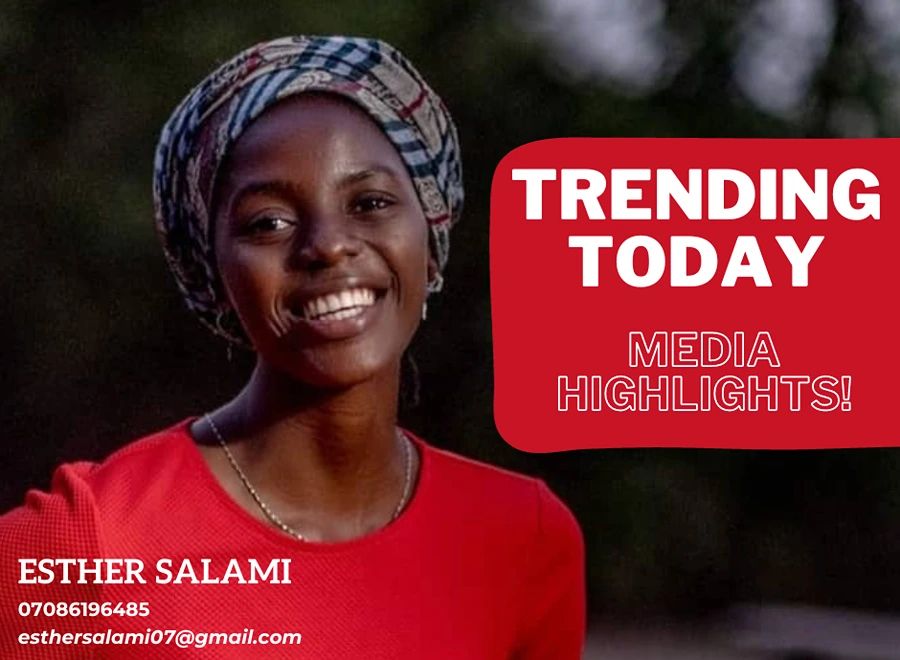Hello and welcome! In today’s trending news stories;
1. A viral video has sparked public outrage after Nigerian House of Representatives member Honorable Alex Mascot Ikwechegh, representing Aba North & South Federal Constituency, was recorded assaulting an Uber driver at his residence in Maitama, Abuja. The altercation began when the driver requested Ikwechegh to come outside to receive his delivery. The video captures Ikwechegh angrily berating, cursing, and slapping the driver, reportedly deeming the request disrespectful. He allegedly threatened that he could make the driver “disappear” without facing consequences. In a second clip, the driver, seated shirtless in his car, claims Ikwechegh tore his clothes. Social media reactions have condemned the lawmaker’s behavior, labeling it as classist and oppressive, with many calling for accountability and justice.
2. The Non-Academic Staff Union of Educational and Associated Institutions (NASU) and the Senior Staff Association of Nigerian Universities (SSANU) have commenced an indefinite strike this Monday, October 28. This decision follows the government’s failure to address their demands for payment of four months withheld salaries, improved remuneration, and implementation of a 2009 agreement. The unions’ request to the Federal Government expired at midnight on Sunday, October 27, following a series of previous actions, including a peaceful protest on July 18 and multiple ultimatums, none of which resolved the issue. In March, the unions staged a one-week warning strike. Then, on July 26, they issued a 10-day grace period to the government, warning of a potential shutdown. On September 12, they granted a final three-week ultimatum, expiring in early October. Although President Bola Tinubu approved payment of the withheld salaries as far back as July 18, the unions assert the payments remain unfulfilled. Following unheeded demands, the unions have now directed all federal and state university members to begin an indefinite, comprehensive shutdown of activities.
3. Bayo Onanuga, President Bola Tinubu’s special adviser, addressed criticisms about Tinubu’s economic policies and the nickname “T-pain,” used online to signify the hardship Nigerians are experiencing. Onanuga clarified that Tinubu is aware of citizens’ struggles and is committed to economic reforms aimed at long-term prosperity. He dismissed the nickname as “mischief,” stating Tinubu worked hard to ease the economic difficulties. Meanwhile, former Vice President Atiku Abubakar has criticized Tinubu’s handling of fuel subsidy issues, which he believes is worsening inflation and hardship across the country.
4. Kaduna State Governor Uba Sani has been bestowed the title “Ezi Enyi Ndigbo” by the community, recognizing his longstanding relationship with the Igbos. Following the recognition, he assured the Igbo community of equal treatment and support under his administration, honoring their contributions to the state’s development at an Igbo cultural event. Sani said his administration is committed to creating a welcoming, secure environment for business and investment and announced plans to allocate land for a new spare parts market. Sani also stated his commitment to inclusivity, rejecting ethnic and religious divisions, and appointed four individuals from the Southeast to his government, inviting the community to nominate an additional representative.
5. The Nigeria Labour Congress (NLC) has criticized the International Monetary Fund (IMF) for denying responsibility regarding Nigeria’s removal of the petrol subsidy. NLC President Joe Ajaaero called the IMF’s stance hypocritical, accusing it of imposing harmful economic policies that have led to hardship and stagnation in Nigeria. During the IMF and World Bank Annual Meetings, IMF African Region Director Abebe Selassie characterized the subsidy removal as a “domestic decision,” which NLC finds insincere, given IMF’s history of recommending similar austerity measures. The NLC argued that while the IMF promotes subsidy cuts as essential for fiscal health, its denial of responsibility ignores the economic strain these measures have caused in Nigeria, where social protections are inadequate. The union stated that the IMF’s influence over developing nations often results in hardships, and it urged Nigeria to reclaim economic sovereignty by resisting externally imposed policies. It called on the IMF to act transparently and own its role, warning that Nigeria may demand the IMF and World Bank’s exit if their policies continue to harm the nation.
6. Dangote Cement Plc has invested over $280 million in Compressed Natural Gas (CNG) technology and infrastructure to support President Bola Tinubu’s CNG initiative for cleaner, more affordable energy in Nigeria. The company, led by Group Managing Director Arvind Pathak, plans to transition entirely to CNG, with most trucks converted by mid-2026. Dangote received 1,500 mono-fuel CNG trucks this October, with another 1,600 expected by year-end, totaling 3,100. President Tinubu’s initiative includes distributing one million free CNG conversion kits, highlighting CNG as essential for Nigeria’s economic and environmental goals. Aliko Dangote, President of Dangote Group, said this aligns with Nigeria’s commitment to net-zero emissions by 2060 and aims to enhance energy independence. The company has established a large CNG refueling station at Obajana. It is developing another at Ibese, reinforcing its leadership in Nigeria’s CNG sector and commitment to a low-carbon economy.
7. Mossad Chief David Barnea, over the weekend, met with CIA Director Bill Burns and Qatari Prime Minister Mohammed bin Abdulrahman Al Thani in Doha to explore options for a potential hostage release deal. The talks, which exclude direct Hamas participation, come after the killing of Hamas leader Yahya Sinwar. While Israel considers a phased release to initiate broader talks, Egypt proposed a two-day ceasefire in exchange for four Israeli hostages, followed by further discussions. Although some Israeli ministers opposed this plan, efforts are underway to improve the terms. Hamas, meanwhile, is pushing for a comprehensive deal, proposing an end to the war in exchange for releasing all Israeli hostages and a specified number of Palestinian detainees. The Israeli government remains focused on securing the hostages’ return, with Prime Minister Netanyahu and other leaders calling it a national priority, acknowledging that compromises may be necessary to achieve this goal.



